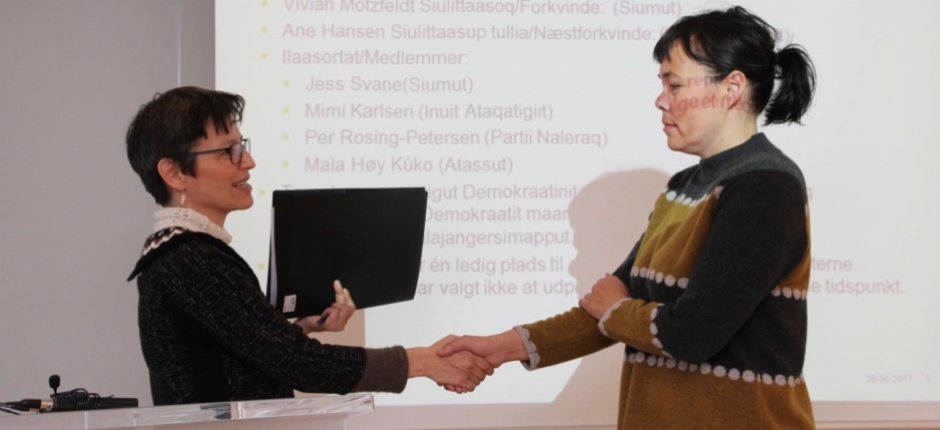Greenland forms a commission to write its first constitution

One of the most divisive issues in Greenland right now is when its march to independence should end. Far less controversial is what the next step should be.
On Wednesday, members of the country’s Constitutional Commission were named. The seven-member panel has seats for representatives from each of the national assembly’s parties, though, for now, only six are taking part. The seventh, Demokraatit, has said it will stay on the sidelines until the commission’s remit is more explicitly defined.
The deliberations of members will be based on the input outside experts. The Danes will also be asked for their advice.
This is because the commission will actually be responsible for coming up with two constitutions over the next three years: one that will be valid before Greenland pulls out of the Kingdom of Denmark, and one that will apply after.
Two important decisions have given rise to the possibility of drawing up each. The first is the acceptance in Copenhagen that Denmark’s two self-ruling territories (the Faroe Islands is the other) may write up a basic law that applies only locally. The one caveat is that they must not conflict with the Danish constitution. It is this stop-gap constitution that the Danish Justice Ministry will be asked to look over.
The second decision is enshrined in the 2009 Self-Rule Agreement with Copenhagen, which gives Nuuk the right to request that powers be devolved to it, and to declare its independence when it sees fit to do so.
“The people of this country decide for themselves when independence can take effect, which makes it important that we have several options. This is why the commission will be asked to base their work with two time horizons,” Suka K. Frederiksen, the independence minister, said.
As part of its work on the post-independence constitution, the commission will also be asked to come up with the guidelines that will govern its relations with other countries, including the possibility of establishing free-association agreements, a form of voluntary federation, typically with a more populous country. Such a model has been suggested as a possible replacement for the agreement that sees Copenhagen represent Nuuk in foreign affairs and provide military protection.
The work of the constitution will fuel debate about when Greenland would be ready to take the next step. During public meetings held earlier this month, Frederiksen made it clear she felt progress of any sort was contingent on the commission completing its work.
“We are laying the cornerstone of the independent Greenland of our children and our grandchildren,” she said.
The first part of her statement is hard to deny. The second will continue to be a topic for discussion well after the commission’s work is complete.